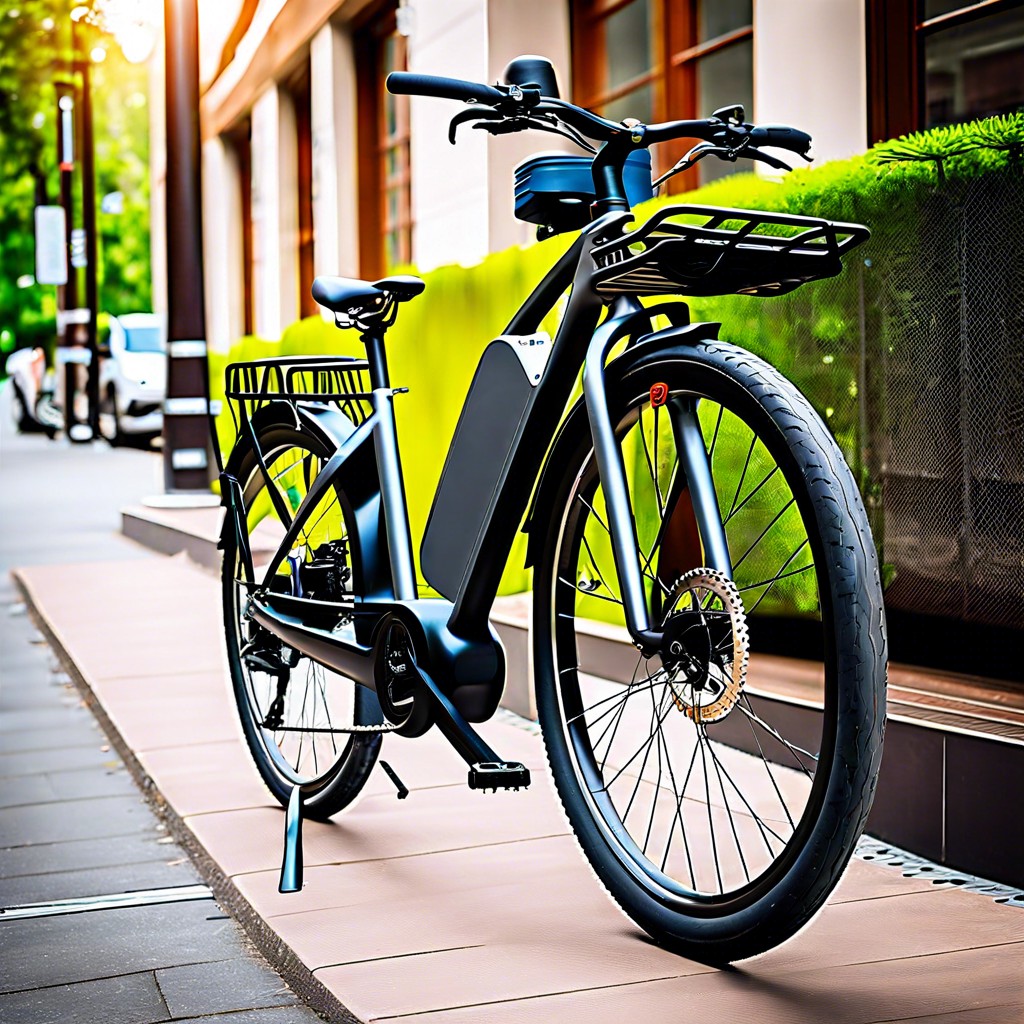Discover the factors that influence the cost of an electric bike and learn how to find one that fits your budget and cycling needs.
Key takeaways:
- Average costs range from $1,000 to over $2,500.
- E-bike maintenance and charging costs are affordable.
- Warranties typically cover major components for up to five years.
- Consider your intended use, battery life, weight, and local regulations when choosing an e-bike.
Average Costs

Electric bikes come with a broad spectrum of price tags, generally influenced by their components, brand reputation, and additional features. Commuter models, a staple for city riders, typically start around $1,000 and can climb up to $2,500, balancing economy with performance. More specialized e-bikes, such as mountain or cargo bikes, can command prices from $2,500 to $5,000, reflecting their advanced design and rugged build. High-end performance e-bikes, offering top-tier technology and materials, take the scale higher, running anywhere from $5,000 to over $10,000 for the cream of the crop. These figures are not set in stone; seasonal sales and new entrants to the market can adjust prices. Remember, the upfront cost is only part of the story; quality often correlates with longevity and a smoother ride, potentially saving dollars down the road.
Electric Bike Types & Price Ranges
Diving into the electric bike market, you’ll quickly notice a spectrum of prices reflecting various models and features. Entry-level e-bikes skirt around $600, offering a no-frills experience suitable for the casual rider. However, for those with a keen eye on durability and more sophisticated components, mid-range models hover between $1,500 to $3,000. These often include improved battery life, higher-quality gears, and sturdier frames.
Aspiring for the top shelf? Premium electric bikes can command upwards of $8,000. These come decked out with cutting-edge technology, like regenerative braking systems, high-grade suspension, and feather-light carbon fiber frames that promise an agile ride. City commuters might lean towards folding electric bikes for convenience, while adventure seekers could veer towards electric mountain bikes built for off-road resilience. Each category aligns with specific budget brackets and user needs.
Remember, just because a bike flashes a hefty price tag doesn’t mean it’s the gold standard for your personal use. Practicality beats luxury depending on daily commutes, storage options, and terrain tackled. Keep a pulse on intended use and you’ll match with a bike that doesn’t overinflate your budget while delivering a smooth, electrifying ride.
Maintenance & Electric Bike Charging Cost
Keeping an e-bike running smoothly does add a tad to your penny jar, but it’s nothing to lose your shirt over. Unlike their gas-guzzling cousins, e-bikes are silent on the wallet. Regular maintenance such as brake adjustments, tire inflation, and chain lubrication runs similar to traditional bikes, though you might need to dip in a little more for specialized e-bike components.
Now, let’s shine a light on charging costs. Juice up your ride for mere cents on the dollar; powering an e-bike battery to full throttle typically costs less than a nickel per charge. That’s less than a cup of Joe at your local cafe! Considering most e-bikes get about 20-70 miles on a single charge, you’re getting quite the bang for your buck, mileage-wise.
Don’t forget, factors like battery capacity, electricity rates, and charge frequency will sway your costs, but even at their peak, they’re a drop in the ocean compared to filling up a tank. So, rest easy – your bank account will hardly notice your new two-wheeled companion.
Electric Bike Warranties
When you’re investing in an electric bike, you’re not just buying a set of wheels; you’re securing a slice of the future on two tires. Just like any smart investment, an e-bike comes with a safety net—warranties.
Manufacturers typically offer warranties spanning one to two years for minor components and around two to five years for major parts like the frame. Always check for:
- The motor warranty, often pegged as the soul of your e-bike, usually covered for up to two years.
- Battery life is paramount; make sure your warranty gives you at least two years of carefree cruising.
- Controllers and sensors are the unsung heroes, and they ought to be protected by the warranty as well.
- Frame and fork warranties can last longer, sometimes for the expected life of the bike.
Each warranty carries its own set of conditions like wear-and-tear exclusions, so always read the fine print to avoid unwanted surprises. It might sound like counting chickens before they hatch, but securing a detailed and comprehensive warranty ensures your e-bike remains your trusty steed for the long road ahead.
Finding the Right E-Bike
Determining the ideal electric bike hinges on a blend of personal needs and preferences. Consider your intended use, whether it’s for mountain trails, city commuting, or casual weekend rides. Each scenario may point toward a specific style, such as a mountain e-bike, a foldable model, or a cruiser.
Pay attention to the battery life. For longer commutes or extended tours, opt for a bike with a high-capacity battery to avoid the inconvenience of frequent recharging.
Take the bike for a spin. Just as you would with a traditional bicycle, test-riding various e-bikes helps gauge comfort and performance. This hands-on experience can reveal much about the bike’s handling and fit.
Reflect on the e-bike’s weight. Heavier models can be a challenge if you need to carry them upstairs or onto public transportation.
Finally, consider the local laws and regulations regarding electric bikes. These can vary widely and may influence your decision. For instance, certain areas may have restrictions on speed or require specific safety equipment.